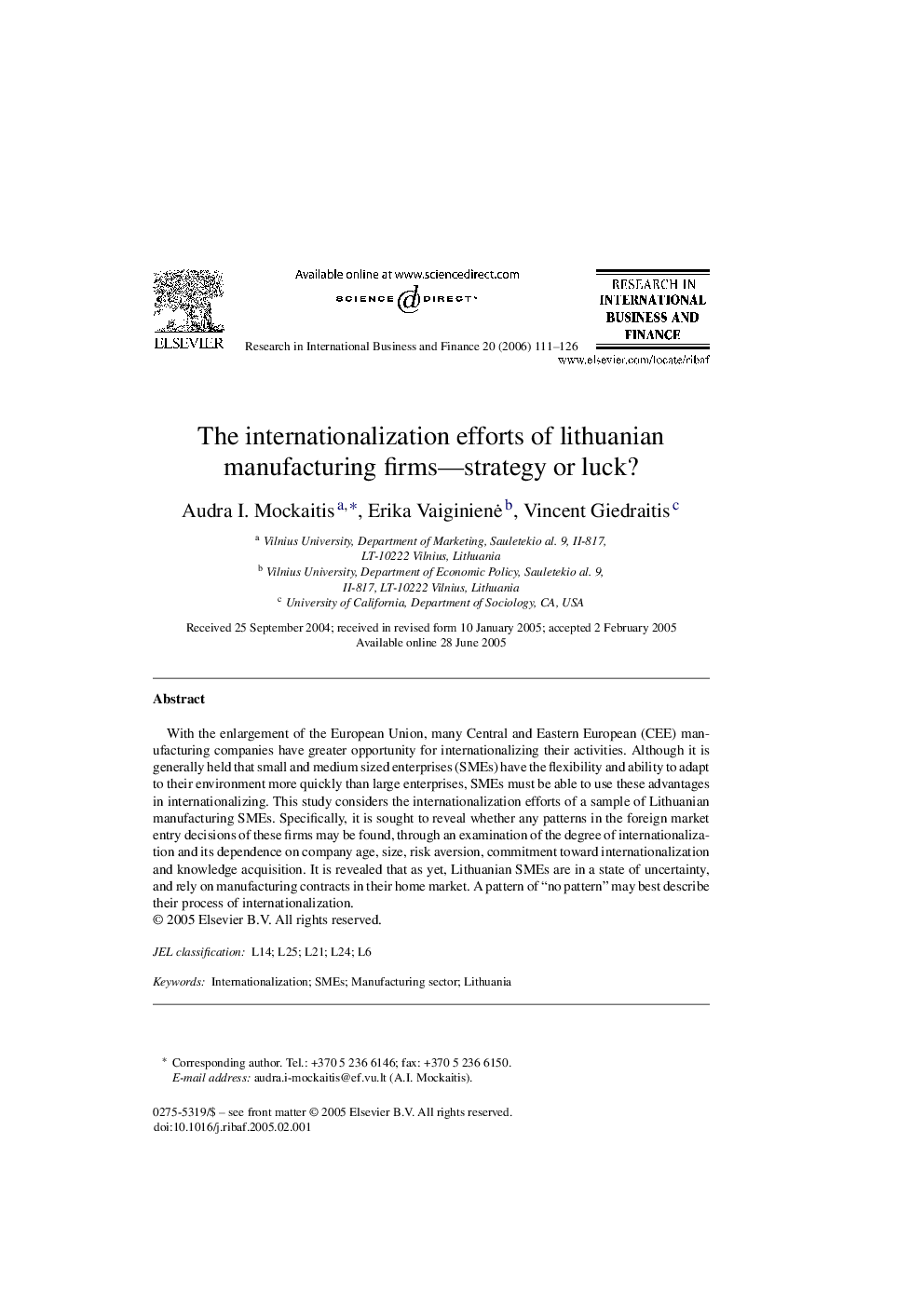| Article ID | Journal | Published Year | Pages | File Type |
|---|---|---|---|---|
| 1003281 | Research in International Business and Finance | 2006 | 16 Pages |
With the enlargement of the European Union, many Central and Eastern European (CEE) manufacturing companies have greater opportunity for internationalizing their activities. Although it is generally held that small and medium sized enterprises (SMEs) have the flexibility and ability to adapt to their environment more quickly than large enterprises, SMEs must be able to use these advantages in internationalizing. This study considers the internationalization efforts of a sample of Lithuanian manufacturing SMEs. Specifically, it is sought to reveal whether any patterns in the foreign market entry decisions of these firms may be found, through an examination of the degree of internationalization and its dependence on company age, size, risk aversion, commitment toward internationalization and knowledge acquisition. It is revealed that as yet, Lithuanian SMEs are in a state of uncertainty, and rely on manufacturing contracts in their home market. A pattern of “no pattern” may best describe their process of internationalization.
